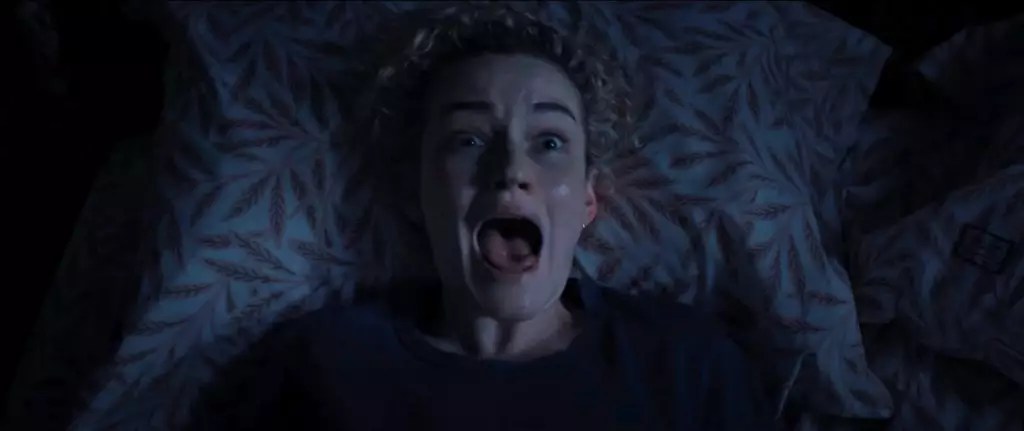In an age where blockbuster franchises and eye-catching horror movies dominate the mainstream, recent box office numbers reveal a troubling decline that Hollywood has been reluctant to openly acknowledge. A closer inspection of the latest releases demonstrates that the industry’s hype often outpaces genuine audience engagement, exposing vulnerabilities that threaten long-term sustainability. This is not merely a temporary slump; it’s a sign of systemic issues rooted in overreliance on reboots, franchise fatigue, and a disconnect from the cultural pulse.
The fact that films like *Weaponsis* and *Freakier Friday* are experiencing sharp declines within their second weekends—-around 49%-48%—suggests audiences are growing weary. *Weaponsis*, which had a solid initial performance, is now on track to fall about 17% behind *Sinners*’ first-week numbers, yet is still comfortably surpassing the performance of *Get Out* during its opening week. While these figures might seem promising at first glance, they are masking a reality where interest in original, daring content is waning. The core insight is that Hollywood’s reliance on established franchises or safe remakes is not enough to sustain audience curiosity indefinitely.
Furthermore, the modest success of *Nobody 2* illustrates a broader problem: studios are increasingly dependent on sequels and franchise installments to attract audiences, but these films often fail to deliver the cultural or artistic energy necessary for sustained profitability. The initial previews of *Nobody 2*—with a modest $3.8M—highlight a market that, while still attentive, is showing signs of fatigue. This pattern underlines that even with seasoned actors and recognizable titles, the allure diminishes rapidly when the content does not innovate or resonate deeply with viewers.
The Myth of the Franchise Economy and Its Flaws
The industry’s obsession with franchise economics is overplayed and dangerous. Films such as *Bad Guys 2* and *Freakier Friday* are emblematic of Hollywood’s fallback strategy: milk existing brands for all they’re worth. These efforts, however, are becoming less effective as audiences grow disenchanted with recycled narratives and predictable story arcs. The fact that *Weaponsis* is projected to gross around $86M after ten days—comparable but slightly behind previous hits—-should be seen as a warning sign rather than a success story. It indicates that even with good marketing and star power, the core appeal wears thin when originality is sacrificed.
Studios seem to believe they can perpetually ride the wave of nostalgia and franchise loyalty, but this approach risks diluting the cultural relevance of cinema itself. The data shows a decline in audience enthusiasm; the second weekend drops are steep, and overall grosses are stagnating or declining modestly. These indicators foreshadow the approaching exhaustion of Hollywood’s current model, which could lead to a downturn unless genuine innovation and risk-taking are embraced.
Additionally, the underperformance of the broader summer slate suggests a shrinking audience willing to invest in cinema. With major movies like *Nobody 2* only earning modest previews and opening figures, the optimism is largely superficial. It’s evident that viewers are seeking more meaningful or diverse entertainment options, which Hollywood has historically undervalued in favor of lucrative sequels and remakes.
The Cultural Disconnect and Its Economic Consequences
This decline isn’t just a matter of numbers; it reflects Hollywood’s failure to connect with a modern audience that’s increasingly skeptical of the industry’s motives. The obsession with safe investment and blockbuster dominance has estranged a portion of viewers who crave more authentic storytelling. When films become predictable, they lose their appeal, and studios are left scrambling for relevance in a rapidly changing media landscape.
Interestingly, the reception of *Nobody 2*—despite critical praise—underscores a paradox: even well-received sequels or franchise extensions cannot compensate for the erosion of originality. Audiences are becoming more discerning and less forgiving of formulaic releases. The industry’s insistence on quantity over quality has backfired, leading to a cyclical pattern of mediocre returns that threaten the economic viability of Hollywood’s current approach.
Furthermore, the rising costs associated with marketing and production make it increasingly difficult for studios to justify risky projects. When the box office fails to meet expectations, it not only impacts immediate revenue but also diminishes investor confidence. There is a tangible risk that Hollywood’s economic model becomes increasingly fragile unless significant reforms are made—shifting toward more creator-driven, innovative, and culturally relevant content.
The current numbers are not just fleeting statistics but a mirror held up to Hollywood’s systemic flaws. Without bold changes, the industry’s dominance risks becoming an anachronism rather than an unstoppable force. The traditional Hollywood pipeline of safe sequels, remakes, and franchises is nearing its breaking point, and the consequences for economic sustainability and cultural influence could be profound.

